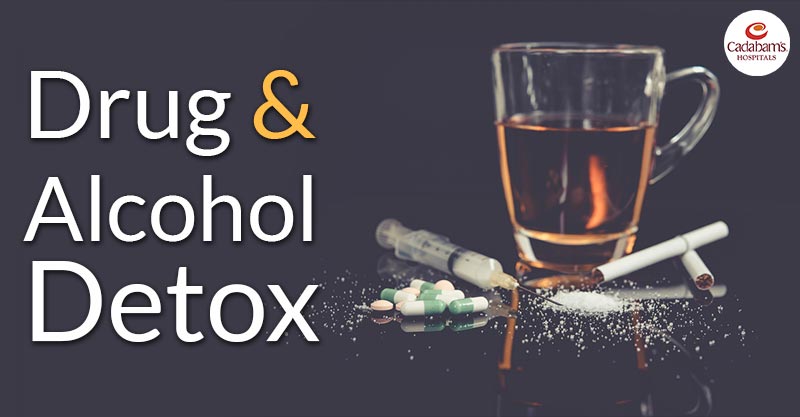Alcohol Addiction and the Power of Collective Support
Relational support is a core aspect of rehabilitation after alcohol dependency. Group therapy brings together people with such problems, improves interaction, reduces isolation, and promotes responsibility. Some participants believe it helps them be firm and have the backing of the rest of the group when going through the recovery process.
The Essentials of Group Therapy in Alcohol Addiction Treatment
Alcohol addiction group therapy entails planned sessions wherein different people come together to share experiences, motivate each other, and participate in tasks that would address drinking problems. Such sessions may involve role play, conflict resolution, and personal management exercises based on a recovery model.
Understanding the Structure of Group Therapy Sessions
Most group therapy includes feedback circles and activities conducted by therapists. Such interactions may include talking about an event, focusing on themes, and role-playing on how to handle adversity. Members actively engage with one another by displaying newly learned skills, continually forming positive support structures, and offering an outlet for participants to articulate their emotions and challenges.
The Role of Facilitators in Group Therapy for Alcohol Addiction
Leaders play a critical role in maintaining order, membership and attention during group therapy sessions. These experienced counsellors appreciate how the group works and assist the members to get the most out of the session through well-coordinated personal transformation processes.
The Benefits of Participating in Group Therapy
Group therapy, as a part of the overall treatment program, has multiple benefits, including developing rapport with other people, getting different ideas, and acquiring new skills for handling stress. It also assists people in forming interpersonal relations, hence relieving the feeling of loneliness, thus enhancing general health.
Building a Community of Support
Another advantage of group therapy is that people generally develop a close relationship with one another due to their experiences. Such a structure of mutual encouragement and reassurance helps people to remember that they are not alone on their path toward recovery.
Learning from Others’ Experiences
Group therapy sessions often involve feedback circles and guided discussions, allowing participants to share their stories and rehearse coping strategies. This dynamic participation, coupled with positive reinforcement and active demonstration of new skills, is crucial in the recovery process.
Developing Better Social Skills
Group therapy allows the members to interact with others and improve communication skills during the group assignment. These improved social skills are especially valuable in a group learning environment and other social interactions in the community.
Reducing Feelings of Isolation
Group therapy assists clients in countering social exclusion due to diagnosis and finding people with similar situations. One of the key benefits of the supportive group context is the sense of inclusion, which is a prevailing problem among addicts.
Gaining New Coping Strategies
In group therapy, clients can pick cues from other members and practice how to cope with stress during the session. It also makes them more resistant to relapse because they are taking more of the substance to achieve the same effect.
Enhancing Self-Esteem and Confidence
Supportive feedback from group members and facilitators boosts self-confidence and self-esteem. Positive reinforcement helps participants feel valued and capable of overcoming their challenges, making encouragement a powerful tool in the recovery process.
Key Techniques and Modalities Used in Group Therapy for Alcohol Addiction
Intervention through group therapy for alcohol dependency involves such techniques as CBT, SBT, psychoeducation, stress management, and experiential communication training. They improve the ways of care delivery and individuals’ growth in the context of a group.
Cognitive Behavioural Therapy (CBT) in a Group Setting
CBT in a group approach encompasses participation in a program that aims to assist participants in constructing better and healthy thinking not associated with substance use. They focus on changing negative thinking patterns and learning to change actions as well as ideas to control addiction since the three functions interdepend.
Social Skills Training Through Group Interaction
Group therapy entails skills training in social skills giving out structured and didactic tasks with feedback. Interaction skills are incorporated by using role-plays, and communication skills are especially useful in individuals recovering from alcohol-related disorders.
Psychoeducation for Alcohol Addiction in Group Therapy
Psychoeducation entails imparting knowledge about alcohol dependency, its impact and how it can be addressed by the participants. This knowledge helps in the management of the condition as part of the recovery process by individuals.
Stress Management and Coping Strategies
Cognitive behavioural therapy earmarks itself with the intent of helping participants learn coping mechanisms to deal with stress devoid of the use of alcohol. Cognitive behavioural therapy is important in learning skills that will enable individuals to stay free from alcohol.
Enhancing Communication Skills within the Group
Unlike individual therapy, group therapy is based on interpersonal processes, which means that clients are forced to listen to each other and even respond. This enhances the interpersonal communication interactions within the group and in the general society.
Get Alcohol Addiction Diagnosed in Hyderabad
It is important that if anyone requires help with alcohol dependency, they seek a consultation and an assessment with a clinician. Cadabam’s is particular about diagnostics to provide proper diagnosis and clear treatment plans to the patients.
What to Expect from Group Therapy Sessions
Cadabam’s group therapy is well-organised and supportive. Sessions may include writing, drawing, speeches, debates, discussions, reading materials, and special tasks to help participants understand addiction and develop new coping methods. Each session is facilitated by care and clinical practitioners to ensure the highest level of impact and negative outcomes are prevented.
Find the Right Group Therapy Program in Hyderabad
It is equally important to note that choosing the correct group therapy program depends on the best approach. At Cadabam’s, clients can choose what group therapy program they want to attend from a list of programs offered.
Why Choose Cadabam’s for Group Therapy in Alcohol Addiction Care
Cadabam’s offers group therapy in Hyderabad where the intervention is managed by experts, and the sessions are conducted to address various issues and foster the path to a healthy life free from alcohol dependence.
Expertise in Facilitating Therapeutic Groups
Alcohol dependency can be a tough and delicate topic to discuss; that is why our highly skilled facilitators will provide participants with the required professional support during the therapeutic groups.
A Welcoming and Safe Environment for All Participants
This way we hope to foster an appropriate social environment where people will be at ease to share and to progress with their recovery process.
Tailored Group Sessions to Meet Diverse Needs
Various issues of the patients are catered for in our group therapy sessions individually to ensure they get the proper therapy.
Commitment to Ongoing Support and Community Building
At Cadabam’s, consumer care is offered on a round-the-clock basis and consumers are made to feel they are wanted. In the next phase after group therapy, participants have other types of treatment and support to attend so that they may be cured permanently.
Other Treatment Options Available for Alcohol Addiction
FAQs
What is group therapy for alcohol addiction, and how does it work?
Notably, alcohol addiction group therapy sessions entail structured meetings through which patients tackle their problems with the help of a therapist.
What are the main benefits of participating in group therapy for someone with alcohol addiction?
Otherwise, the advantages of attending such a support group include gaining similar experiences, relief by feeling understood, enhancing the quality of social relationships, and acquiring knowledge of how to handle such conditions.
How often do group therapy sessions for alcohol addiction take place?
Usually, group therapy sessions may be conducted several times during a week or even a fortnight.
Is group therapy suitable for all individuals with alcohol addiction?
Group therapy is useful to many people, though its effectiveness is to be measured in different patients and cases of the presence of comorbidities. This is where seeking counsel from a therapist comes in handy with a view to getting to know the right treatment procedure.














 Available
Available
















